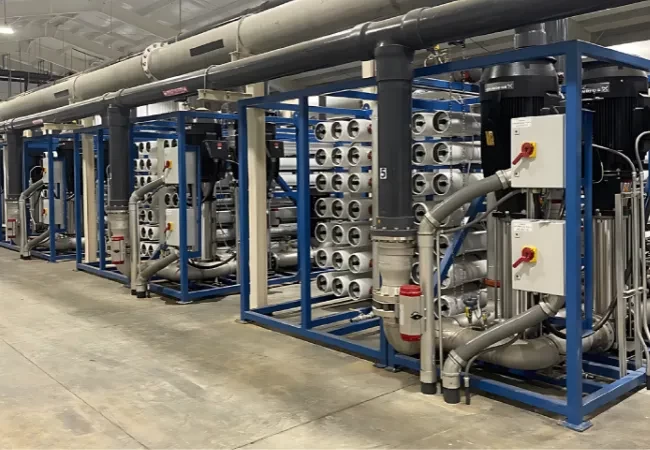Advantages of Implementing CCRO Systems in Industrial Settings
With the increased pressure to efficiently manage the water footprint, today's industries need to be even more responsive. The Closed Circuit Reverse Osmosis (CCRO) systems have proved to be one of the most promising solutions that can provide enormous advantages in diverse industries. Here's a close look at why CCRO is gathering traction and how it can transform industrial water management.
What is CCRO?
Closed Circuit Reverse Osmosis is an advanced water treatment process that seeks to maximize the amount of purified water that can be extracted from a given source while minimizing the volume of wastewater. This CCRO reverse osmosis technology, therefore, comes in very handy for industries depending on large volumes of water since this guarantees top-level water efficiency while at the same time minimizing reject flow. Ideally, it is very useful for industries that consume vast volumes of water since it maximizes its usage and minimizes wastage.
Key benefits of CCRO to industries
Maximized water efficiency
One of the most prominent advantages of CCRO is that it can have recovery rates as high as 98%. This means that industries would get a greater amount of purified water from the same amount of input. This increased output thus becomes very crucial for operations based in locations where every drop counts. Additional recovered water means that industries will rely less on outside sources for water supply and will be able to make full use of available water at their disposal.
Reduction of Cost
The CCRO water treatment systems are intrinsically cost-effective. Essentially, such systems reduce the need for additional water procurement due to enhanced recovery and minimize the volume of waste requiring treatment. This then further reduces operation expenditure related to sourcing water and waste management. These cost savings can have huge implications on the bottom line for many industries, hence making it very cost-effective in the long run.
Sustainability and Environmental Impact
Environmental responsibility is an emerging concern for all types of industries. The CCRO water treatment systems contribute to sustainability because they generate less amount of wastewater. This reduction in wastewater helps the industries to not only meet regulatory requirements but also to remain good stewardship institutions from the environmental point of view. By reducing waste and conserving water, the industries help in greater environmental conservation.
High Water Quality
The CCRO systems are equipped with advanced filtration technology that guarantees the quality of purified water. In industries such as pharmaceuticals, food and beverages, and electronics, the quality of water may impact the safety and performance of products; hence, CCRO reverse osmosis systems meet these demanding requirements with reliable high-quality water.
Versatile Applications
The CCRO technology is very versatile and applies to various industries as follows:
- Food and Beverages: Ensuring a high quality of water introduced into their production processes impacts product standards and safety.
- Manufacturing: Supplies clean water for cooling systems and machinery, which is key for smooth operations and equipment longevity.
- Pharmaceuticals: Satisfies rigid purity requirements for the production of drugs, ensuring contaminants do not affect the final product.
It is the versatility of CCRO systems that can be adapted to meet the requirements of several industries, enhancing effectiveness and efficiency.
Operational Flexibility
The CCRO systems are available and customized to meet the requirements of various industrial applications, allowing for long-term operational flexibility. They can be adjusted from operational changing conditions down to evolving regulatory standards without a loss of optimum performance and efficiency. This, therefore, gives industries with dynamic operational environments a highly valued resource through CCRO water treatment systems.
Waste Minimization
Effective management of this concentrated waste stream from CCRO systems not only minimizes environmental impacts but also can create opportunities for the recovery of wastes and reuse of resources. As volume is reduced, there can be several ways to recycle or use the waste again that further increase the sustainability of the industry.
Conclusion
The various advantages that Closed Circuit Reverse Osmosis systems bring forth in industrial water management include reducing costs by maximizing water efficiency or improving sustainability without compromising on high-quality water, these systems offer valuable solutions across industrial applications. With industries continuing to seek ways of optimizing operations with environmental and regulatory requirements, CCRO stands as a very powerful tool for the attainment of such goals. By adopting CCRO water treatment technology, industries will not only improve water management but also build a more sustainable future.
As a leading water treatment company, Alantech provides a wide range of innovative solutions. With international clients across 10+ countries and years of expertise, we deliver top-notch water treatment systems. For more information about CCRO water treatment, please get in touch with us.


